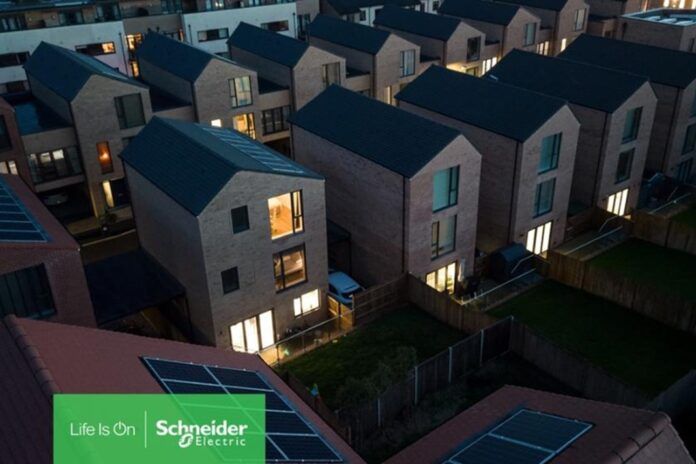
Schneider Electric released the third edition of its consumer survey in a white paper titled ‘Evolving home energy consumption: Intentions, actions and hurdles to greater home energy efficiency’.
The company surveyed 13,000 people from 11 countries across the world to “uncover global attitudes toward household energy efficiency, sustainability and smart home technology”.
The report found that 82% of respondents consider energy efficiency “somewhat important” or “very important,” whilst 84% said energy efficiency is the top desired home improvement, and 70% responded that reducing their carbon footprint is “important” to them.
A total of 58% of homeowners turn off lights as their primary strategy for saving energy, but Schneider Electric noted that lighting comprises around “just 5% of electricity bills“. The second-most popular method is unplugging unused chargers at 48%, which the company said also has a “minimal impact”, saving $0.26 per charger annually.
Schneider Electric stated that the report revealed another “overemphasis” on lighting when it comes to the types of home energy technology consumers have in their homes, with 52% of consumers believing that smart lighting enhances energy efficiency. While 24% own smart lighting, 21% have a smart thermostat, with 46% acknowledging its energy-saving benefits.
The survey also explored attitudes toward artificial intelligence (AI). A total of 44% of respondents said they would never rely on AI for household tasks, 35% don’t fully understand it, and 41% want to actively avoid it. In addition, 52% believe smart home technology is too expensive.
The company said its survey also showed an “awareness gap” for more traditional home technology as 30% of respondents don’t know what their electrical panel does, and 16% don’t know its location.
Michael Lotfy Gierges, executive vice president of Home & Distribution at Schneider Electric, said: “Consumers want to reduce their energy bill, increase their energy reliability and increase energy efficiency in their homes.
“Yet, there exists a gap between intention and action. The technology to enhance home energy efficiency exists today but there is a lack of awareness of the most impactful ways to deploy it. Through greater electrification and digitalisation, home energy use can be better measured, controlled and transitioned to more renewable sources.”
